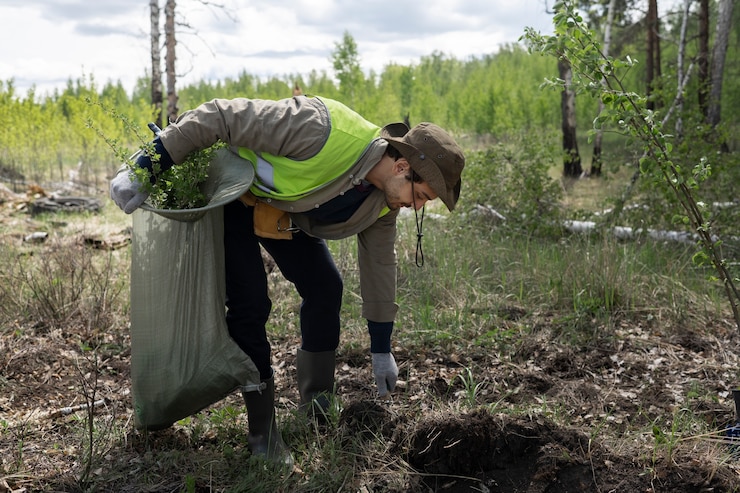Environmentally responsible farming involves adopting waste management practices that minimize the negative impact on the environment and promote sustainable agricultural practices. Here are some waste management practices for environmentally responsible farming:
- Composting: Composting is a natural process of recycling organic waste materials, such as crop residues, manure, and food scraps. By composting these materials, farmers can produce nutrient-rich compost that can be used as a soil amendment, reducing the need for synthetic fertilizers and improving soil health.
- Manure Management: Livestock farming generates a significant amount of manure, which can be a source of water and air pollution if not managed properly. Environmentally responsible farmers implement manure management systems that focus on proper storage, treatment, and application techniques. Techniques such as anaerobic digestion, composting, and controlled application help reduce nutrient runoff and odor issues associated with manure.
- Integrated Pest Management (IPM): IPM is an approach that minimizes the use of pesticides by combining biological, cultural, and chemical control methods. By implementing IPM, farmers can effectively manage pests while reducing the environmental impact. This includes practices such as crop rotation, biological control (using beneficial insects), and monitoring pest populations to determine the appropriate time for intervention.
- Water Management: Efficient water management is crucial for environmentally responsible farming. Farmers can implement practices such as drip irrigation, which delivers water directly to plant roots, reducing water waste through evaporation. Additionally, techniques like contour plowing and cover cropping can help minimize soil erosion and conserve water.
- Nutrient Management: Proper management of fertilizers is essential to prevent nutrient runoff and water pollution. Farmers can use precision agriculture techniques to apply fertilizers in a targeted manner, matching the specific needs of crops. Soil testing can help determine the optimal nutrient levels, allowing farmers to apply fertilizers more efficiently.
- Waste Reduction and Recycling: Implementing practices to reduce waste generation is another important aspect of environmentally responsible farming. This includes minimizing packaging waste, reusing materials whenever possible, and recycling materials such as plastics, metals, and paper.
- Crop Residue Management: Managing crop residues, such as stalks, leaves, and straw, is crucial to prevent soil erosion and maintain soil health. Farmers can adopt conservation tillage practices, such as no-till or reduced tillage, which leave crop residues on the soil surface. This helps improve soil structure, conserve moisture, and reduce the need for herbicides.
- Energy Efficiency: Farmers can reduce their environmental impact by implementing energy-efficient practices. This includes using energy-efficient equipment, optimizing energy use in buildings and facilities, and exploring renewable energy options such as solar panels or wind turbines.
- Proper Disposal of Hazardous Materials: Farmers must ensure the safe disposal of hazardous materials, such as pesticides, herbicides, and waste oils. Following regulations and guidelines for the proper handling, storage, and disposal of these materials helps prevent environmental contamination.
By adopting these waste management practices, environmentally responsible farmers can minimize their ecological footprint, protect natural resources, and contribute to a more sustainable agricultural system.
Join 'Farmers Mag' WhatsApp Channel
Get the latest Farming news and tips delivered straight to your WhatsApp
CLICK HERE TO JOIN






